THE ELECTRICAL LIFE OF LOUIS WAIN (2021)
Genre: Drama
Director: Will Sharpe
Cast: Benedict Cumberbatch, Claire Foy, Andrea Riseborough, Toby Jones, Sharon Rooney, Aimee Lou Wood, Hayley Squires, Stacy Martin, Phoebe Nicholls
Runtime: 1 hr 51 mins
Rating: PG13 (Some Coarse Language)
Released By: Shaw Organisation
Official Website:
Opening Day: 7 April 2022
Synopsis: The extraordinary true story of eccentric British artist Louis Wain (Benedict Cumberbatch), whose playful, sometimes even psychedelic pictures helped to transform the public's perception of cats forever. Moving from the late 1800s through to the 1930s, we follow the incredible adventures of this inspiring, unsung hero, as he seeks to unlock the "electrical" mysteries of the world and, in so doing, to better understand his own life and the profound love he shared with his wife Emily Richardson (Claire Foy).
Movie Review:
We must confess that we haven’t heard of the eccentric British illustrator Louis Wain before this movie, so pardon us if we didn’t start off being enamored with the subject material in the first place. Yet those who were similarly ignorant of the titular polymath may likewise be wondering why director and co-writer Will Sharpe had deemed it interesting to recount the life of Louis Wain from cradle to grave, notwithstanding how his drawings had endeared the independent-minded animal with English households and made them consider the feline as a domestic pet.
Quite certainly, this two-hour biopic fails to make good on its narrator’s description of Louis (Benedict Cumberbatch) as a ‘failed art teacher, failed musician, aspiring inventor, enthusiastic poly-hobbyist and of course part-time illustrator’. What we do learn rather emphatically is how Louis is saddled as a young adult with the responsibility of being the primary breadwinner for his family following the death of his father; as the only male and eldest of the Wains, Louis has to support his mother and five sisters by working for the Illustrated London News as an illustrator.
These women, especially the most outspoken sister Caroline (Andrea Riseborough), will come to define his life for better and for worse. Their disapproval of his courtship of the household governess Emily Richardson (Claire Foy) undoubtedly counts towards the latter, not only because it was societally scandalous for a ‘gentleman’ to be in a relationship with someone from the servile class, but also because of their fear of losing the constant support he gives that they crave. Refusing to submit to family objections, Louis and Emily move to an adorable thatch cottage in Hampstead, where they would live out an unfortunately brief marriage.
By the end of the first hour, Louis will find himself all alone again, except for a black and white kitten he and Emily had found in their garden before her passing whom they would christen Peter. It is this discovery that would spark his imagination into the world of cats and come to define his legacy, beginning with a two-page Christmas spread in the paper and then to greeting cards, newspaper comics and children’s books. Louis’ fame in this regard culminates in his crowning as chairman of the National Cat Society, and it is fascinatingly surreal to watch how his creations go from viral to mainstream.
Alas, as his mental state takes a turn for the worse, so does the coherence of the movie itself. Oscillating between melancholy and whimsy, the second half charts his descent into disillusionment and possible schizophrenia. It is not easy trying to cram 25 years worth of a person’s life into an hour, and the result is predictably episodic and unimpressive. We feel some sympathy for his misfortune of not copyrighting his work, such that even though widely reproduced, he gains nothing from them. We feel less for one of his sisters Marie (Hayley Squires), who suffers from mental illness and has to be sent to an asylum, where she eventually passes from influenza; ditto for the death of his mother from influenza too, shortly after he arrives in New York hoping to forge a new phase of his career.
It isn’t only that Sharpe and his fellow screenwriter Simon Stephenson fail to find a compelling way to portray Louis’ decline; it is also the fact that they don’t quite know how to balance the tone of the film, whether to let it go soggy with sadness or to lift it with trips of visual gimmickery. A particular scene that shows his hallucination of drowning triggered by a broken sink encapsulates the often jarring switch between the two, and by the time it ends with him sobbing in his skivvies for his dead mother, we are left unsure whether to feel pity for him.
That the movie does not otherwise fall into tedium is credit to Cumberbatch, who proves yet again why he is the go-to guy for playing tortured geniuses onscreen. It is a twitchy, high-strung performance, but one suffused with pathos and grace. Cumberbatch and Foy are also excellent together, and it is evident how the film is much less once their scenes of courtship and marriage are over. The other supporting actors such as Riseborough, Toby Jones (as Louis’ exasperated but indulgent editor) and Adeel Akhtar (as an acquaintance Louis makes when he is young, and who will have another consequential run-in with Louis very much later on in life) are just as fine, and add to the quality of the period drama.
Yet the production values cannot quite compensate for the thinness of the material, not so much that Louis did not have an interesting life, but rather Sharpe’s treatment of it, especially his mental health. There is also an attempt to explore his obsession with electricity, but that gets even shorter shrift and is therefore even less satisfying. So even though the first hour is both eccentric and enjoyable, and Cumberbatch is brilliant as always, ‘The Electrical Life of Louis Wain’ is hardly electrifying, and only hums along pleasingly for half of its journey before sputtering. It isn’t quite a misfire, but this uneven biography is ultimately as unfocused as its subject was.
Movie Rating:



(Like its subject, this biography starts off strong and focused, before going off in too many directions at once)
Review by Gabriel Chong
You might also like:
(Updated PG13 Rating).jpg)
Movie Stills
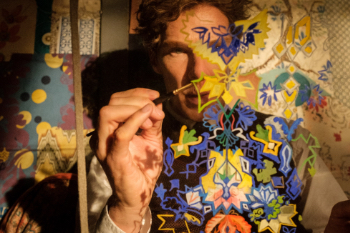
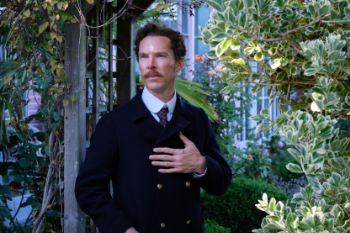
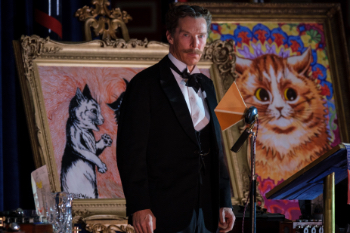
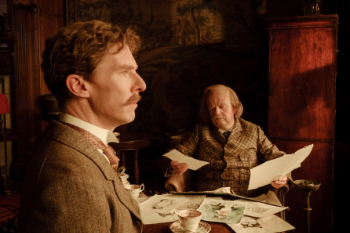
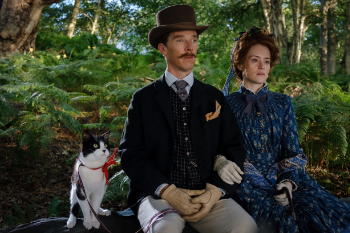

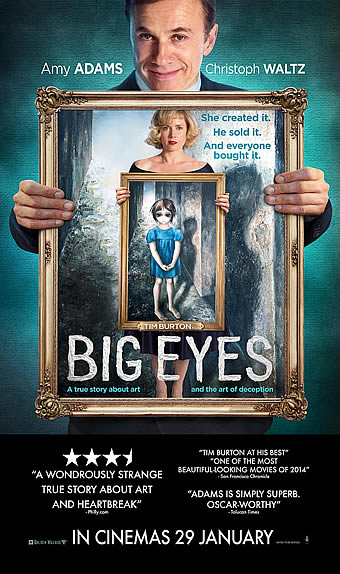
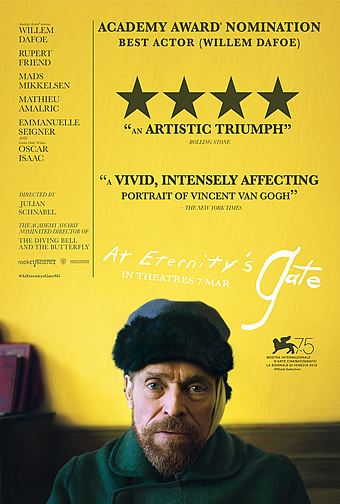

.jpg)